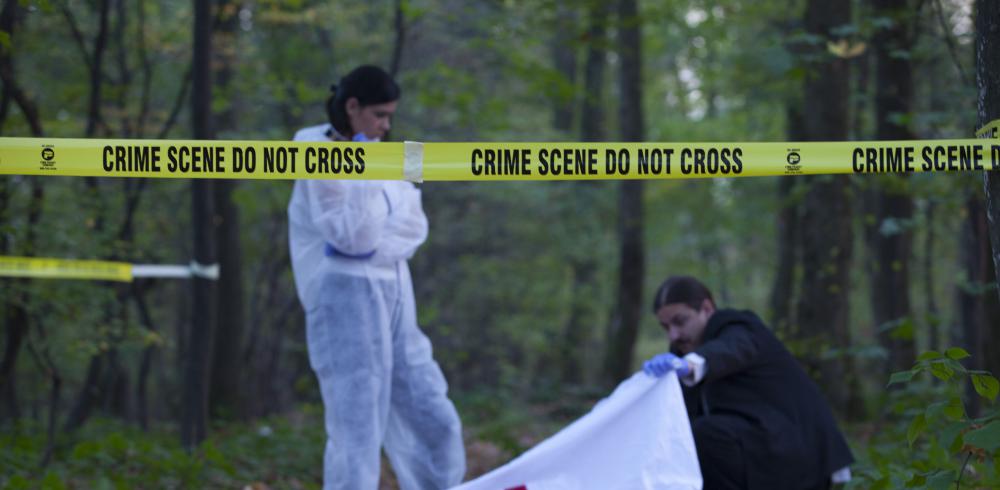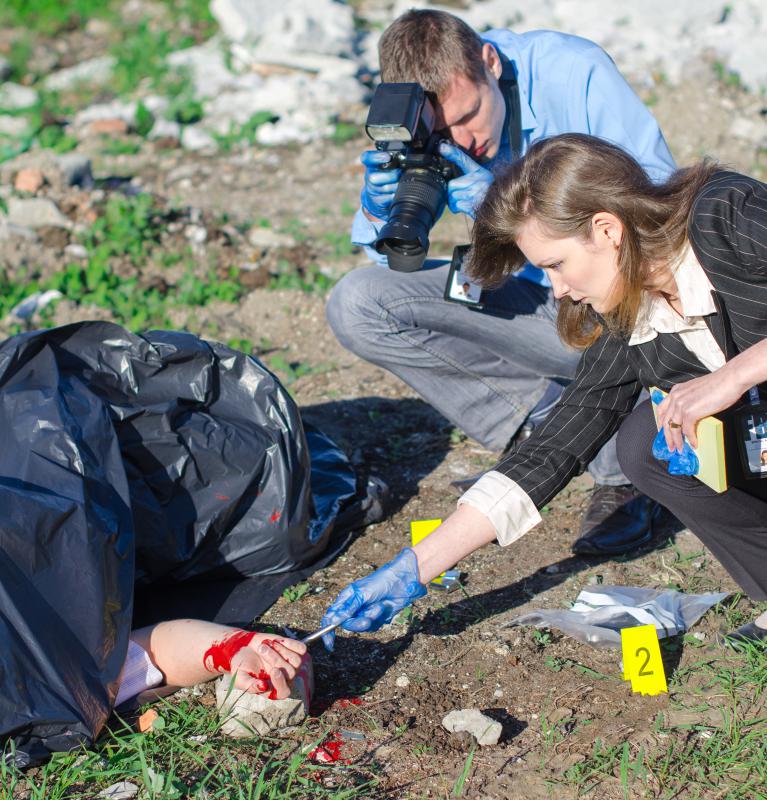At WiseGEEK, we're committed to delivering accurate, trustworthy information. Our expert-authored content is rigorously fact-checked and sourced from credible authorities. Discover how we uphold the highest standards in providing you with reliable knowledge.
What are the Duties of a Crime Scene Investigator?
Crime scene investigators, sometimes referred to as CSIs, are individuals trained to study crime scenes. One of the main duties of a crime scene investigator is to secure and preserve the scene of a crime. A CSI is also usually responsible for crime scene photography, detailed notes and paperwork, and evidence collection and processing.
A crime scene investigator's duties begin as soon as he arrives at the scene of a crime. After surveying the area, he must determine the boundaries of a crime scene. These boundaries are sometimes encircled with crime scene or police ribbon, or tape.

A crime scene investigator will then try to keep the scene in the condition it was found. Any piece of evidence that is moved, removed, or even added can make solving a crime much more difficult. A fingerprint from a careless police officer or a moved object can cause serious setbacks in a criminal investigation. Investigators will usually try to keep as many people out of the scene as possible. They will also try to ensure that everyone follows the correct procedures, such as wearing latex gloves and not moving anything.

While walking around the scene, a crime scene investigator will also usually take photographs. The crime scene photography requirements will generally depend on the nature of the crime. If a murder was committed, for example, pictures of the victim would be necessary. Any other evidence, such as a murder weapon or broken items, will also be photographed.

Accurate measurements from a crime scene are very useful when a crime scene investigator sketches the layout of the crime scene. These sketches are important, since they can show things that a photograph can not. A blood trail leading to a victim who is around the corner, for example, can not clearly be captured by a camera.
Another important duty of a crime scene investigator is evidence collection. Some evidence, such as a dead body or ransom note, is large and can be seen with the naked eye. Other evidence may require a trained eye or special equipment to see or be collected. This type of evidence may include fingerprints, bodily fluids, shed skin cells, or tiny fibers or hairs.

When all of the evidence has been collected, a CSI must then either process it himself — depending on his area of expertise — or ensure that it reaches the right department to be processed. Fingerprints, for example, may be processed by one CSI, while another CSI analyzes bodily fluids. Studying and analyzing the evidence collected at a crime scene can help investigators determine how and when a crime occurred. Sometimes, it can also tell investigators who possibly committed a crime.

Although often glorified as an action packed and exciting career, being a crime scene investigator often involves an enormous amount of paperwork. Notes must be taken during each stage of the investigation, from beginning to end. These are then usually put into reports. Additionally, paperwork must also be filled out every time evidence changes hands.

This is often known as a chain of custody of evidence, and it is an extremely important part of a criminal investigation. Keeping a detailed log of who handled any evidence can often make it hard for a defendant to prove that the evidence was contaminated or tampered with. This is especially important when a crime scene investigator is called to testify at a criminal trial.
AS FEATURED ON:
AS FEATURED ON:



















Discussion Comments
@Grivusangel: I've heard of the same thing happening. And I know the CSI people don't get results nearly as fast as they do on TV. I suppose the TV shows have increased the numbers of people going into the field, which is probably a good thing, but nothing is ever like you see on TV. And like the article says, it's a lot of very unglamorous paperwork.
The first rule of crime scene investigation is don't contaminate the crime scene. A murder case in my town several years ago was tried three times because the evidence wasn't collected properly and was cross-contaminated. A crime scene investigator doesn't need to cause more puzzles while on the scene.
Post your comments